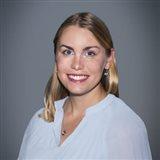Drexel Students, Research Community Made Their Mark on 2023 AAAS Meeting

- Early-Career Hiring Remains Active but Increasingly Selective, According to Drexel’s 2026 College Hiring Outlook
- Drexel University's Recent Academic Activity: Sponsored Opportunities and New Partnerships From Fall 2025
- Faculty Highlights: Recent Awards and Grants from Fall 2025
- ADHD Symptoms Predict Distinct Creative Problem-Solving Styles and Superior Solving Ability

For the first time, Drexel University sponsored the American Association for the Advancement of Science (AAAS)’s annual meeting, which brings together experts, leaders and influencers in all areas of science. The 2023 meeting focused on “Science for Humanity” and featured groundbreaking multi-disciplinary research.
Drexel’s student researchers showcased their impact on the world of science by displaying posters on social sciences, brain and behavioral studies, developmental biology and more. While Drexel faculty and experts discussed research with peers and made new connections with colleagues, Drexel graduate and undergraduate students left a mark on the E-poster competition and took home 17 of the 39 awards, including 10 first place awards and seven honorable mentions.
Executive Vice Provost for Research and Innovation Aleister Saunders, PhD, led the Drexel contingent and saw firsthand the impact that sponsoring the event will have on the University.
Q: What is the AAAS and what organizations attend?
A: AAAS is the largest scientific organization in the world and there’s a meeting every year. A lot of us faculty, graduate and undergraduate students go to what I would call disciplinary conferences about specific topics like neuroscience, modern language, things like that, but the AAAS conference is broad in a great way. It focuses a lot not only on the technical side of science, but also the impact on society, and I think that’s where Drexel lives. It’s about having impact and trying to encourage the positives and grapple with the unintended consequences.
There was such a unique and interesting mix of individuals. There were heads of federal funding agencies, high school students, retirees as well as Nobel laureates. The conversations we had there were similar but different than the conversations we would have at our disciplinary conferences. In terms of other institutional sponsors, it was an interesting mix. We acted at the “Host University Sponsor,” so we were the main sponsor. But there were countries that sent delegations, such as Germany, Canada and Japan. Foundations that support science, such as the Chan Zuckerberg Initiative, had a strong presence. NASA and Arizona State University had a strong presence as well. It was just a really broad slate of sponsors and exhibitors, and as sponsors, we had the biggest presence of any of those institutions.
Q: Drexel sponsored AAAS this year for the first time. Why is that meaningful?
A: AAAS was founded in Philadelphia at the Academy of Natural Sciences in 1848, so that’s a really big part of why we’re engaged in it, because it’s part of our DNA. Last year, the conference was supposed to be in Philadelphia and Drexel was going to sponsor it then, but it went remote because of COVID.
I think the thing I appreciated most about our sponsorship is it wasn’t passive; it wasn’t just a sign hung up. We brought that sponsorship to life with programming and expertise and conversations about real topics. We had our experts, students and faculty there that really brought the work we do to life with deep conversation and engagement. There were experts and researchers on everything from the ethics behind increased autonomy to neutrino detection in Antarctica to equitable engagement around climate change to STEM education for underserved communities. It was sponsorship with substance.

Q: How were our people and work received by colleagues at the event?
A: Our booth in the exhibition hall was really prominently featured, so we would get a lot of people stopping by. I can’t tell you how often we had someone by to say, ‘I heard someone from Drexel speak and I was so inspired by what they said,’ and the other thing I heard a lot was, ‘I didn’t know Drexel did so many things.’ It was really powerful. We also had a lot of people come by after the opening reception where Drexel's President John Fry spoke to tell us how inspiring his remarks were.
The whole conference started with President Fry giving this speech to about 1,500 to 2,000 people about real topics, like equity in STEM disciplines. It opened with the University's president and ended with the announcement of the student E-poster winners, and Drexel won 17 of 39 awards. I left feeling so proud of our institution.
Q: The event has ended, but what are some lingering benefits to Drexel's reputation and relationships?
A: The people who attend AAAS are influencers in the academic and scientific worlds, so we were able to enhance our reputation among the attendees. We got to show what we do, and I think we formed relationships at this conference that will continue to help enhance the day-to-day work of our scientific research as well as our academic reputation.
We were the host university sponsor in Washington, D.C., so that’s a market that we’re familiar with and there’s some Drexel brand recognition there as well. Most importantly, D.C. is the seat of power when it comes to science and policy. There were thousands and thousands of attendees over the three days of the conference, and everyone saw Drexel just about everywhere they looked.
Q: Any final takeaways?
A: This experience was a way to give our talented students, faculty and leadership the opportunity to project that talent to a worldwide audience, because there was also a virtual component.
Simply put, we should be proud of our institution. People are impressed by what we do and how we do it.
Get a look into Drexel's experience: A Community Focused on Building a Brighter Future
In This Article
Drexel News is produced by
University Marketing and Communications.
